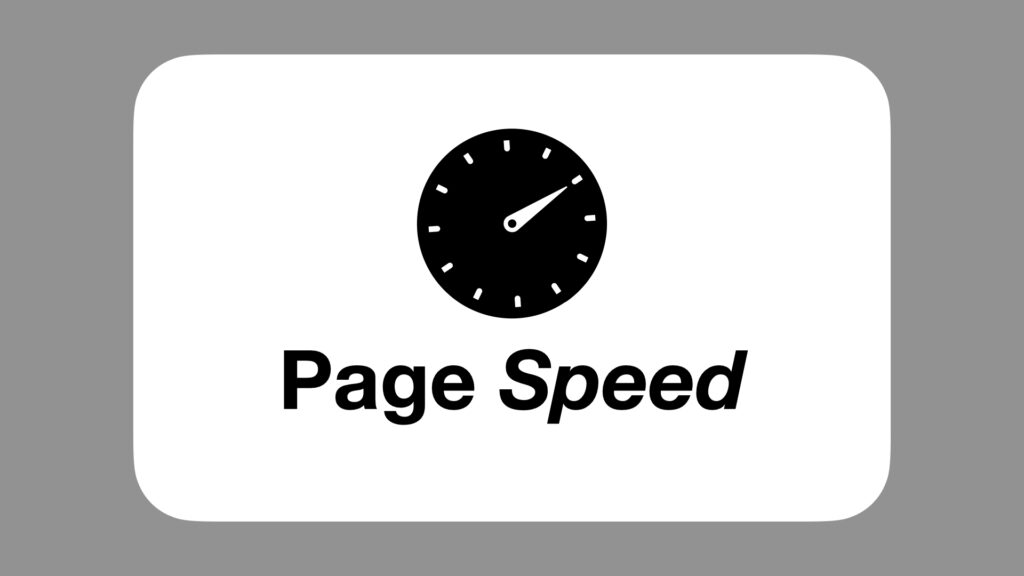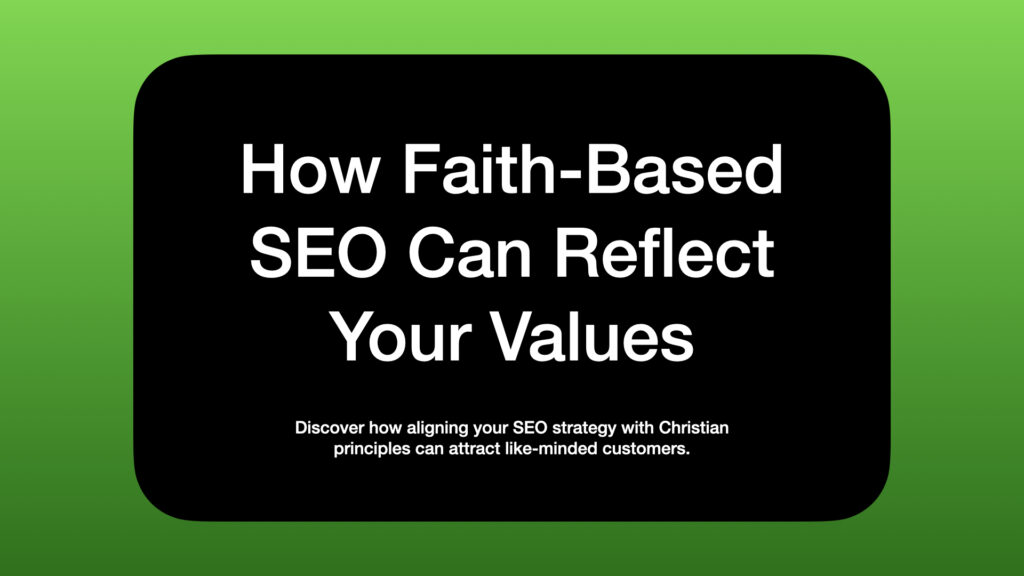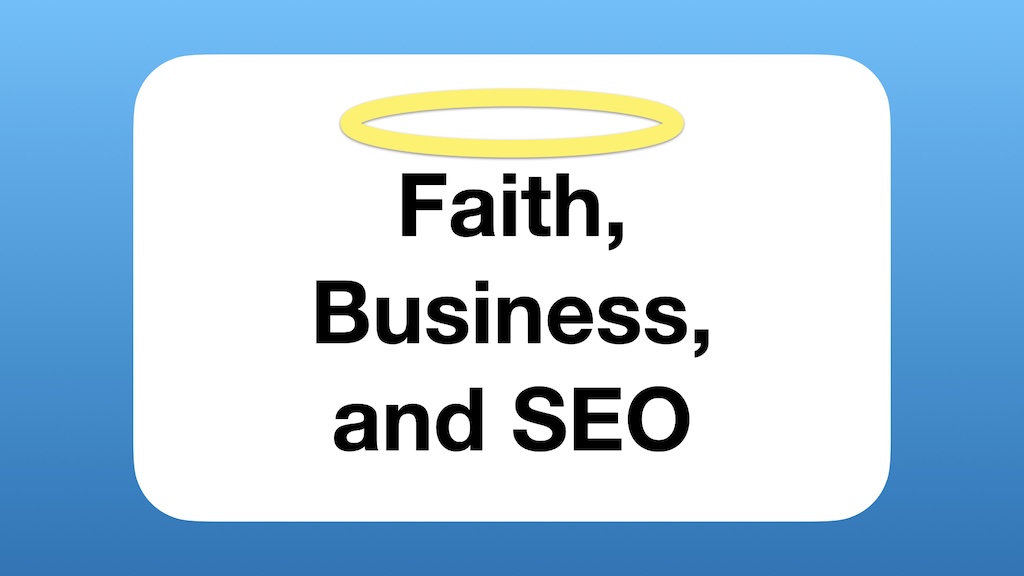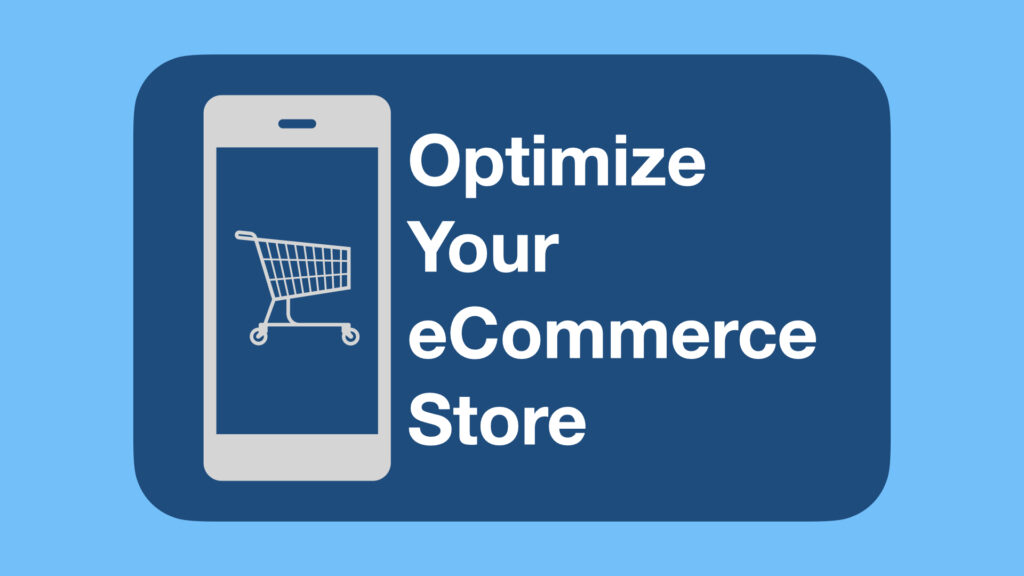
In 2024, we want everything fast—especially when it comes to browsing online. If you’ve ever clicked on a website that took forever to load, you probably didn’t stick around for long. You’re not alone! Google knows this too, which is why page speed is a big factor in how websites rank in search results. For Christian websites, improving your page speed can not only boost your search rankings but also create a better experience for visitors looking for faith-based content. Let’s break down why page speed matters and how it can impact your website’s success.
Why Page Speed Matters for SEO
Page speed is exactly what it sounds like—how fast your website loads when someone clicks on it. When your website loads quickly, people can access your content faster, and Google is more likely to rank it higher in search results. Why? Because Google wants to make sure users find what they’re looking for without waiting around. A slow website can frustrate visitors and cause them to leave before they even read what you have to say.
Think of it like this: If your website is like a church, page speed is like having doors that open smoothly versus ones that get stuck. When the doors open smoothly, visitors can come in without any hassle. But if they get stuck, some people might turn around and leave before they even get inside.
How Page Speed Affects User Experience
Page speed isn’t just about pleasing Google—it’s also about keeping your visitors happy. When someone visits your website, they’re likely looking for something specific, whether it’s information about a Bible study, Christian products, or encouragement from a blog post. If they have to wait too long for your page to load, there’s a good chance they’ll click away and look for a faster option.
Good Example: A website that loads in under 3 seconds allows visitors to quickly access your content, explore different pages, and engage with your site without frustration.
Bad Example: A page that takes more than 5 seconds to load can cause visitors to bounce (leave the site) before they even see your content. They might think the website is broken or outdated, even if it’s full of great resources.
How Page Speed Impacts SEO Rankings
Google uses page speed as a ranking factor in its algorithm, which means that slower websites might find themselves slipping down the search results. This is especially important if you’re trying to rank for competitive keywords like “Christian counseling services” or “faith-based financial advice.” Even if your content is top-notch, a slow website can hold you back.
Good Example: A Christian blog that loads quickly and provides valuable content is more likely to stay on the first page of search results, especially when competing with similar sites.
Bad Example: A slow-loading Christian bookstore website may struggle to appear in search results, even if it offers a wide selection of books, simply because Google wants to provide faster, more efficient options to users.
Simple Ways to Improve Your Website’s Page Speed
You don’t have to be a tech wizard to speed up your website. There are some simple steps you can take to make sure your site loads faster and keeps visitors engaged:
1. Compress Images Before Uploading
Large image files are one of the biggest culprits of slow-loading websites. Before uploading images to your site, use a free tool to compress them without losing quality. This can make a huge difference in load times, especially if you have image-heavy pages.
Good Example: Compressing images of church events or Christian product photos can cut down the file size, allowing your website to load faster.
Bad Example: Uploading high-resolution images straight from a camera without compressing them. It might look great, but those large files can slow your site to a crawl.
2. Use a Reliable Hosting Provider
Your hosting provider plays a big role in how fast your website loads. Choosing a reliable hosting service can help keep things running smoothly, especially if your website gets a lot of traffic.
Good Example: Investing in a good hosting provider that offers speed optimization can improve your load times and help your site handle more visitors.
Bad Example: Using a super-cheap hosting plan that can’t handle traffic spikes. It might save money upfront, but it could hurt your SEO and user experience in the long run.
3. Enable Browser Caching
Browser caching allows visitors to store some of your website’s data on their device so that it loads faster when they visit again. It’s like having a shortcut for returning visitors, which can significantly improve page speed.
Good Example: Enabling browser caching so that visitors who come back to read your latest blog post don’t have to wait for all the same files to load again.
Bad Example: Not enabling caching, which means visitors have to load the entire website from scratch every time, slowing things down.
4. Minimize Plugins and Code
If your website is built on a platform like WordPress, you might have a lot of plugins installed. But too many plugins can slow things down. Review your plugins and remove any that aren’t necessary. Also, make sure your code is clean and streamlined.
Good Example: Using only the essential plugins and working with a developer to minimize unnecessary code can speed up your site.
Bad Example: Using tons of plugins for every little feature, even if you don’t really need them. It can make your site slower and more prone to issues.
5. Use a Content Delivery Network (CDN)
A CDN is a network of servers that helps deliver your website’s content more quickly to users around the world. This is especially helpful if your Christian website serves people from different regions or countries.
Good Example: Using a CDN can ensure that visitors from both the East and West Coasts of the U.S. have a similar, speedy experience on your site.
Bad Example: Ignoring a CDN if your audience is spread out globally, which could lead to slower load times for visitors who are farther from your server’s physical location.
Why Faster Page Speeds Lead to Better Rankings
In the end, faster page speeds help create a better user experience, and Google is all about serving up the best user experience possible. When your website loads quickly, visitors are more likely to stay longer, explore more pages, and come back again. This sends positive signals to Google, which can help boost your site in search rankings.
And for Christian websites, this means you’re not just improving your rankings—you’re making sure people find the content, encouragement, and resources they’re looking for when they need it most.
If you’re looking to improve your page speed but don’t know where to start, we’d be happy to help you out with tips and guidance! Reach out through our contact page, and let’s work together to make sure your website is running smoothly and serving your audience well.











